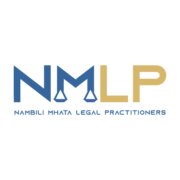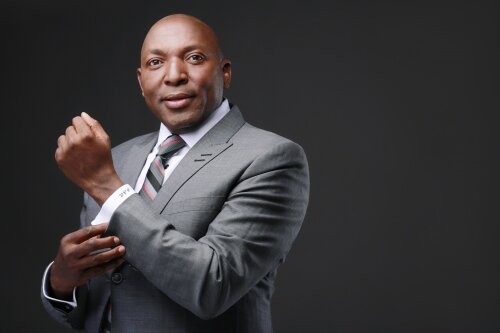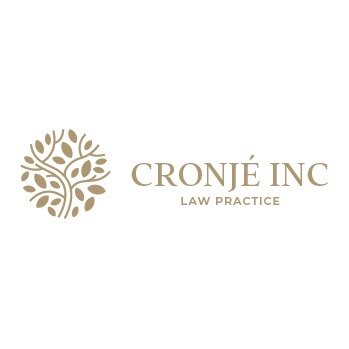Best Lawsuits & Disputes Lawyers in Windhoek
Share your needs with us, get contacted by law firms.
Free. Takes 2 min.
List of the best lawyers in Windhoek, Namibia
About Lawsuits & Disputes Law in Windhoek, Namibia
Lawsuits and disputes in Windhoek, Namibia, involve legal proceedings that arise out of a wide range of issues including, but not limited to, family law, labor disputes, contract issues, and property disputes. In the Namibian legal system, these matters are typically handled within the civil court system. Local laws are influenced by both Roman-Dutch Law and customary laws, unique to Namibia's legal framework. The court structures range from traditional courts to the High Court, and disputes should be addressed with the guidance of legal professionals familiar with the local legal environment.
Why You May Need a Lawyer
Engaging a lawyer is crucial in various situations that can escalate into legal disputes. Some common scenarios where legal assistance is beneficial include:
- Receiving a notice of legal action or summons.
- Disagreements related to property rights or land ownership.
- Family law issues such as divorce, child custody, or inheritance disputes.
- Employment-related grievances including unfair dismissal or discrimination.
- Contract disputes arising from business transactions or personal agreements.
- Personal injury claims resulting from accidents or negligence.
- Consumers disputes regarding the sale of goods or services.
Local Laws Overview
Namibia's legal system is based on a combination of statutory and customary laws. Several key aspects relevant to lawsuits and disputes in Windhoek include:
- Court Structure: The judicial system comprises Magistrate's Courts, High Courts, and a Supreme Court, each handling cases within their jurisdictional limits.
- Limitation Periods: Different categories of claims have set limitation periods within which an action must be instituted.
- Customary Law: In certain communities, customary laws play a significant role in dispute resolution, recognized alongside statutory laws in specific instances.
- Legal Representation: The Legal Practitioners Act regulates the practice of law, requiring lawyers to be admitted and enrolled in Namibia.
Frequently Asked Questions
What is the first step if I want to file a lawsuit?
The initial step is to consult with a qualified lawyer who can guide you through the merits of your case and advise on the appropriate legal actions to take.
How long do I have to file a claim in Namibia?
The limitation period varies depending on the case type, generally ranging from three to ten years. It's essential to seek legal advice to ensure timely filing.
What should I do if I receive a court summons?
Seek immediate legal counsel to understand your rights and obligations, and to prepare an appropriate response or defense.
Can I represent myself in court?
Yes, you can represent yourself; however, having legal representation is strongly advised due to the complexities of legal proceedings.
How are legal fees structured in Namibia?
Legal fees vary based on the complexity of the case, the lawyer's experience, and the time involved. Some lawyers offer fixed fees, while others charge hourly.
What types of alternative dispute resolution (ADR) are available in Namibia?
ADR methods like mediation and arbitration are common and encouraged to resolve disputes amicably outside court.
Is there legal aid available for those who cannot afford a lawyer?
Yes, the Legal Aid Directorate provides assistance to qualifying individuals unable to afford legal services.
What happens during a preliminary hearing?
A preliminary hearing helps determine the readiness of a case for trial and address any pre-trial motions or issues.
How can I enforce a court judgment?
Enforcement typically involves writs of execution, and it is advisable to work with a lawyer to ensure proper compliance with court orders.
What is the role of customary law in Namibian legal disputes?
In areas governed by traditional authorities, customary law may offer alternative dispute resolution mechanisms recognized by formal courts.
Additional Resources
For further assistance, you might consider the following resources:
- Law Society of Namibia: Offers information on legal practitioners and rights.
- Legal Assistance Centre: Provides legal education and advice to communities.
- Office of the Ombudsman: Addresses complaints related to human rights and public administration.
Next Steps
If you believe you require legal assistance for a lawsuit or dispute, consider taking the following steps:
- Contact a qualified lawyer specializing in the relevant area of law.
- Prepare all necessary documentation and details related to your case.
- Arrange for a consultation to discuss your legal options and potential outcomes.
- Follow through with your lawyer’s advice and actively participate in the decision-making process throughout your case.
By understanding your legal rights and the resources available to you, you can navigate the legal landscape in Windhoek more effectively.
Lawzana helps you find the best lawyers and law firms in Windhoek through a curated and pre-screened list of qualified legal professionals. Our platform offers rankings and detailed profiles of attorneys and law firms, allowing you to compare based on practice areas, including Lawsuits & Disputes, experience, and client feedback.
Each profile includes a description of the firm's areas of practice, client reviews, team members and partners, year of establishment, spoken languages, office locations, contact information, social media presence, and any published articles or resources. Most firms on our platform speak English and are experienced in both local and international legal matters.
Get a quote from top-rated law firms in Windhoek, Namibia — quickly, securely, and without unnecessary hassle.
Disclaimer:
The information provided on this page is for general informational purposes only and does not constitute legal advice. While we strive to ensure the accuracy and relevance of the content, legal information may change over time, and interpretations of the law can vary. You should always consult with a qualified legal professional for advice specific to your situation.
We disclaim all liability for actions taken or not taken based on the content of this page. If you believe any information is incorrect or outdated, please contact us, and we will review and update it where appropriate.
Browse lawsuits & disputes law firms by service in Windhoek, Namibia
Windhoek, Namibia Attorneys in related practice areas.
















